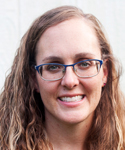DISASTER RECOVERY GUIDE
Finding Value in the 150-Hour Requirement
by Sarah L. O'Rourke, CPA, Rutgers Business School –
June 8, 2023

In contemplating the 150-hour requirement for licensure — if and how the rule benefits both CPA candidates and the profession — it’s important to note that it’s also part of a larger discussion around the decline in the CPA pipeline and accounting program enrollments in general. It seems there’s no better time to be an accounting student — you are in high demand! But the trend is troubling for the accounting profession itself.
So why does the 150-hour requirement exist and what value does it provide? I assume that, at least in part, the thought-process behind the rule initially was that accounting students should acquire additional knowledge which would prove useful in their future careers. But how has this scenario played out over the years? How do students choose to complete these credits?
Options for Students
Students have various options for completing their 150 credit hours, including the following:
- Earning Advanced Placement Credits. Some students come to college with so many advanced placement (AP) credits from high school that the 150-hour requirement is barely a concern. This is a positive situation, because the AP credits free up time for students to focus on other useful courses in college — courses that will hopefully best prepare them for the professional world.
- Completing a Double Major or Other Additional Credits as Undergraduates. Students who don’t have significant AP credits can still figure out ways to complete the 150 hours during their undergraduate years. These students may take an extra class each semester or take advantage of summer and winter session offerings. Some even choose to pursue a double major. The benefit here is the additional knowledge gained — for example, a double major means a wider skillset. However, cramming 150 credits into four years could mean students are not getting the most from their education. While some excel at this pace, others struggle and barely get by with mediocre grades. In addition, some students don’t pursue a double major or even take additional business credits; some complete the 150-hour requirement with nothing but random classes. While this certainly is a means to an end, it’s difficult to see the value in this approach and how it will benefit students in their professional careers.
- Pursuing a Graduate Degree. Some students choose to pursue the extra 30 credits in the form of a business-related graduate program. After all, why not turn that effort into a degree? This is the pathway I chose in completing my 150 hours, and I have never, not even for a day, regretted the decision. It has opened so many doors for me. The downside is that a graduate degree can be too expensive or time-consuming for some.
Support from the Profession
Given these potential options, how can we best support CPA candidates on their pathway to licensure? Most importantly, we need to provide candidates with a route to complete these credits — not just to get them done, but to turn them into something valuable.
I am often puzzled when I hear that some CPA firms uphold a policy where job candidates must complete their 150 hours before starting full-time work. While I understand new employees must be ready to work plenty of hours, this also seems like a short-sighted approach and detrimental to the profession in the long term.
Perhaps we should consider the bigger picture and the enduring value in making these credits meaningful. For example, courses often become more meaningful once you have some work experience under your belt, and doing a graduate program part-time in the evenings while working could be an ideal solution. In a profession where an ever-increasing skill level is demanded, we should encourage candidates to get the most value possible from these additional courses. Otherwise, the 150-hour requirement, in my opinion, could make the profession more difficult to enter, without providing any real benefit to the profession itself.
 | Sarah L. O'RourkeSarah L. O’Rourke, CPA, is an assistant professor of professional practice in the Department of Accounting & Information Systems at Rutgers Business School-New Brunswick. She is a member of the NJCPA. More content by Sarah L. O'Rourke: |
This article appeared in the Summer 2023 issue of New Jersey CPA magazine. Read the full issue.
The information in this guide has been gathered from many sources, including the Internal Revenue Service, the Social Security Administration, state agencies, professional organizations and members of the NJCPA. The majority of state agencies offer online and prerecorded services. It’s best to check online or call before you visit.
Material contained within this guide should be augmented by, and used in accordance with, a certified public accountant's professional judgment. Your CPA can properly apply the tax laws and regulations to the facts and circumstances of your particular situation. For help with locating a CPA, visit findacpa.org.
The New Jersey Society of Certified Public Accountants is not responsible for any claims arising as a result of this information or its usage.
This guide was updated in August 2024. Future users of this material are cautioned that some portions, particularly tax-related information, may become outdated.